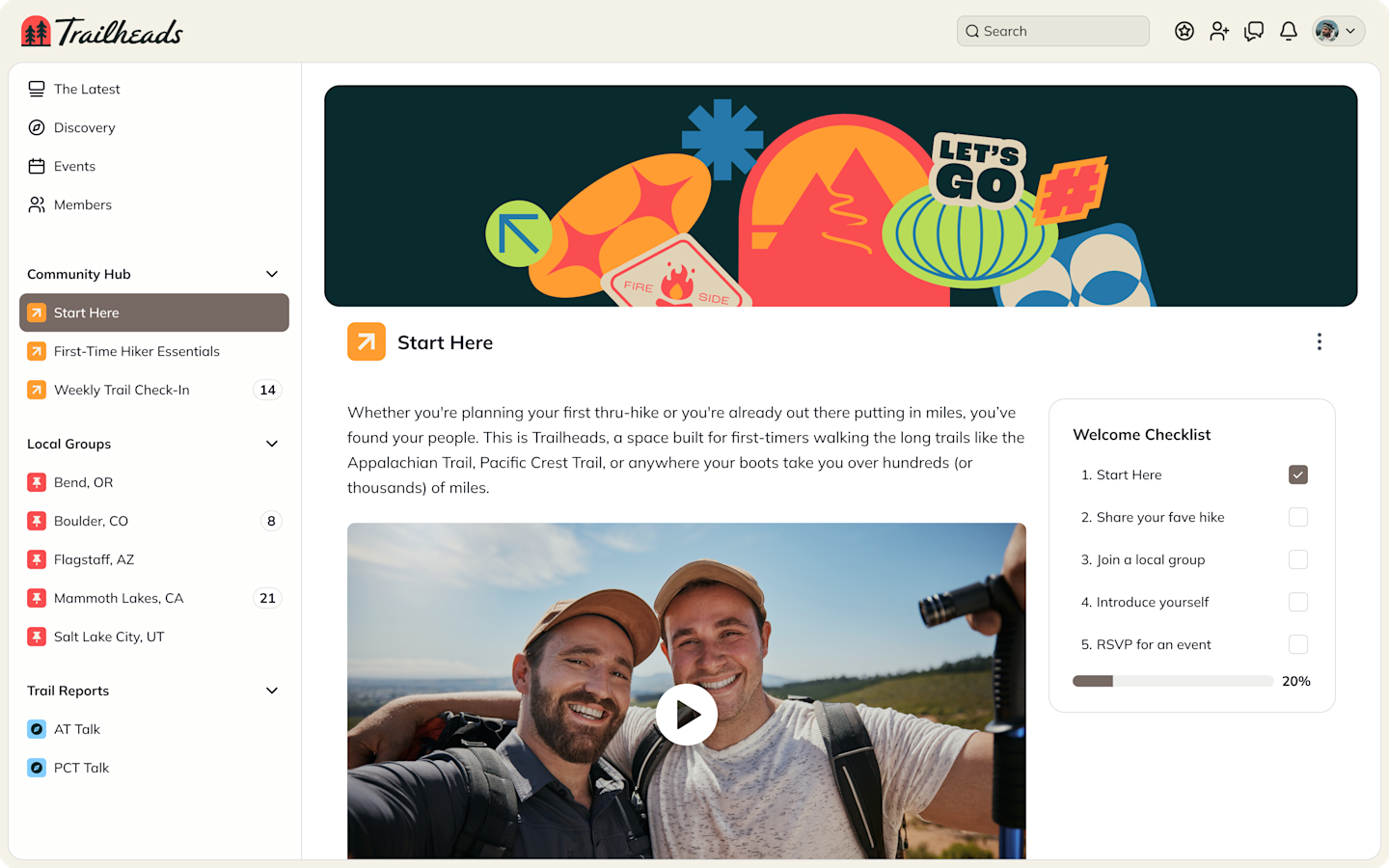Creators & Entrepreneurs
5 WordPress Alternatives for 2026
If you’re looking for a place to build your online presence, here are 5 modern options.
Author
Last Updated
January 9, 2026

Table of Contents
There was a time when WordPress ruled the internet. It was the young days of blogging, and with the exception of a few free options like Blogger or Geocities, the place to build was on WordPress. It had the customization options and the SEO advantage, and with a lot of popular bloggers monetizing through their favorite web host affiliate, many people getting into the blogging game started with WordPress.
But things are changing… fast.
While WordPress remains a popular CMS, the way that we engage with and consume content on the Internet is changing all the time. And the options for creators are always changing too.
This means that there are a ton of good WordPress alternatives, each with their own strengths.
In this article, we'll talk about some different options. We'll introduce you to website builders, membership options, and online course creators, giving you great alternatives to WordPress no matter what your specific business case is.
Try G2's top-rated community platform and launch your community site - it's free for 14 days!
1. Squarespace
Best drag-and-drop website creator
If you just need a website, say you run a local business, or you're looking to make a personal or portfolio site, there's no point in struggling with WordPress anymore. Squarespace will give you a better-looking site for half the struggles, no need to install endless plugins or get frustrated with mobile responsiveness.
It has an easy drag-and-drop creator, plus a bunch of templates to spark your imagination and get you started.
Squarespace also lets you add an online store to your website too, so if eCommerce is your jam, it might be a good place to build.
2. Mighty Networks
Best cultural software platform

If you're looking for more than content, it's tough to use WordPress. When you start to get into different business models like selling memberships or online courses, you run into the nightmare that is finding, installing, and sometimes buying plugins.
And after all these headaches, you still end up with a product that doesn't work that well or look that good in the end.
If you're looking for a place to run a community or course business, forget WordPress.
Build on Mighty instead.
Mighty Networks is G2's #1 community platform that brings together content, courses, community, and commerce. And Mighty's flexible Spaces mix in live streaming, integrated events, discussion forums, messaging and chat, member profiles, and a ton of content options no website will give you. You can build and sell access to your community and Spaces, or bundle any and all of these.

Mighty Networks is built for engagement, with AI-boosted tools to connect members to each other. It also adds gamification and automations, bringing all this together on amazing apps for every device.
Give it a try!
And if you love creating content, Mighty Networks gives you the tools for this too. With options to create posts, articles, polls, and embed video, pictures, links, and images, it's a great replacement for a traditional blog or content site.

And if building a course is your thing, Mighty Networks gives you an easy and intuitive platform for delivering live or asynchronous courses.
Try Our Community Name Generator
Our AI engine is here to help you create a community name that feels like magic. Just share a few words about who your community is for and we’ll get to work.
Examples: coaching clients, meditation novices, vegan chefs, dog lovers, aspiring entrepreneurs, etc.
The names generated by Mighty Co-Host™ are examples only and may be used by other businesses or subject to third-party rights. For more information, check our Terms
3. Wix
Wix is another drag-and-drop website builder with many similarities to Squarespace. It has elegant templates you can work from for just about any type of website, and it even has a free option.
Like Squarespace, you can also add a store to your website, bringing e-commerce to your brand.
Although Wix has had some issues with Google searchability in the past, its low cost and ease-of-use makes it a decent WordPress alternative, especially for a personal portfolio or basic website.
4. CMS Hub
HubSpot is a CRM software (that's customer relationship management for those struggling with all these acronyms), that gives its users a powerful engine to run sales, marketing, and emails with. But along with its well-known marketing engines, HubSpot also makes a website builder: CMS Hub.
CMS Hub is a drag-and-drop editor that creates websites for a variety of different uses, coming with a bunch of pre-made themes to choose from. The biggest advantage to CMS for those creating heavy content or making sales through their website is the ability to have seamless integration with HubSpot’s other tools – especially if you already use them. CMS Hub also gives you a lot of support as you build your website, including on-demand customer service, making it a serious contender for anyone who wants to build and host a website for their business, especially if you’re running a larger company that needs more pages.
5. Kajabi
We’ll include one more WordPress alternative for those looking at building online courses. Kajabi is an online course builder that comes with its own marketing platform built-in. In addition to building courses, this means you can set up complex marketing funnels, email sequences, and custom landing pages.
Although it's not really a spot to build content, and you can't really do much with it beyond simply running and selling a course, it's an option. However, it costs twice as much as alternatives like Mighty Networks, so you’d need to make sure it has the features you need.
Conclusion- Want to start building?
If you're ready to start, why not try Mighty Networks? It will give you a powerful content site where you can serve up value to your members, as well as easy monetization for selling courses and community memberships.
While a new WordPress build can take weeks of work and customization, your Mighty Network can be up and running in the next 20 minutes.
Don't take our word for it. Try it for yourself! Free. No credit card required.
Ready to start building your community?
Start a free 14-day trial to explore Mighty—no credit card required.
More like this
Join Mighty Community
Learn the principles of Community Design™ (and see them in action) alongside thousands of creators and entrepreneurs. It's free to join!

Online Courses
Creating a Course
Teaching a Course
Course Platforms
Selling a Course
Communities & Memberships
Community Platforms
Managing a Community
Building a Community
Growing a Community
Monetizing a Community
Content Creation
Creators & Entrepreneurs
Monetization
Content Creation
Starting a Business
Website Builders
Creating & Managing a Website
Events
Event Platforms
Hosting & Marketing Events
Branded Apps
Creating a Mobile App
Coaching Apps
Community Apps
Coaching
Mastermind Groups
Starting a Coaching Business
Coaching Platforms
Filter by Category
Online Courses
Communities & Memberships
Creators & Entrepreneurs
Events
Branded Apps
Coaching
Start your free trial
14 Days. No Credit Card Required.





















